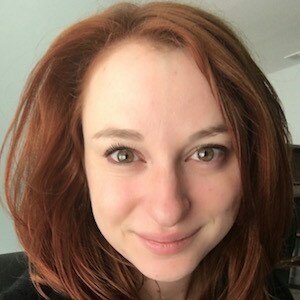For this episode of Dear Sugar, the Sugars, Cheryl Strayed and Steve Almond are joined by psychotherapist Dr. Lois Nachamie, author of The Monster Within: The Hidden Side of Motherhood, to answer two letters from two mothers dealing with what some people consider the ultimate taboo: hating motherhood.
Cheryl opens the podcast by talking about her own experience with motherhood. She says she had always heard about how powerful a mother's love was, but it wasn't until she experienced it herself that she really understood. She says the birth of her first born child really did change her. She says, "I've never had such a bright, light, profoundly beautiful moment, as I have in mothering my kids. And I've never had such dark moments. My kids have tested me to my absolute limit and then far beyond it." Those dark moments are what this episode is about.
Both letters come from women who struggled to get pregnant but when they finally had children found motherhood challenging, to say the least. The first letter comes from a woman who had horrible postpartum depression. She loves her daughter and thinks she's amazing but says, "I wanted to die every single day of that first year." She says she couldn't shake the darkness.
"I hate the lack of sleep and I hate playing 'ring around the rosie' and I hate picking up pasta from the floor and I hate the tantrums," she says. "I do my best. I play with her as much as I can and I cuddle with her, because I love her even though I hate mothering. I don't find innate joy in motherhood." She asks the Sugars how she can learn to love motherhood and signs the letter "Love, I'd rather be an auntie."
The second letter comes from a woman who, like the first, wanted a child very badly but she and her husband found themselves unable to have one. Luckily she was able to conceive after only two years of IVF. She says, "The first few years were hard, as they are for any new parent, but full of so much love and joy. We left the pain of infertility behind us, and then we got accidentally pregnant the natural way." They were shocked but very very excited. After their second baby their family felt complete.

Two years later, she says she hates being a parent. "I mean, I really, really hate it." Her kids are wonderful and she loves them but she still can't stand it. "The amount of chaos, noise, needs, disruptions, whining, meals, laundry, etc. is so far beyond what my limits are that I can barely function," she writes. "And it should be noted that I don't suffer from depression or have anything clinical going on." She went to therapy for over a year and the issue seems to be that she just hates parenting and being with her children.
She asks the Sugars for advice on how to accept her lot. "How can I find enjoyment in something I thought I'd love, but actually hate?" she asks. She signs the letter, "With love, the bad mom."
Cheryl says she relates to these letters, to the "burden of motherhood." Steve points out the similarities between the two letters. Both women struggled to get pregnant. He says this has led to both women having huge expectations. That "having a child would deliver a deeper sense of fulfillment that had been withheld from them." Steve says that it's a pretty high expectation to put on the experience of motherhood and might explain, "Why the reality of it feels so devastating."
Both women are dealing with huge amounts of guilt and disappointment. Cheryl suggests that in those moments where everything feels lost, 'Think, 'Okay, what is the one good thing about this? Where is the light?' Using this idea of, 'I love my children' or 'I love my child' as the life raft to get you out of this terrible darkness.' " The women are attaching themselves to the idea that they hate being a mother, which will, "Only bring [them] more deeply into a sense of despair. versus attaching yourself to this statement: 'I love my daughter, I love my children.' "
Bonus Info: The Sugars call Dr. Lois Nachamie. Nachamie talks about how when a mother looks at her child she, "Sees the sun, the moon and the stars." She says these women are internalizing their own darkness, and not looking at their children with that loving light. She says that by trying to turn a loving face toward their children, "They would feel better, the kids would feel better and the kids would start, I'm sure, behaving better."
instant happy in your
mailbox every day.


